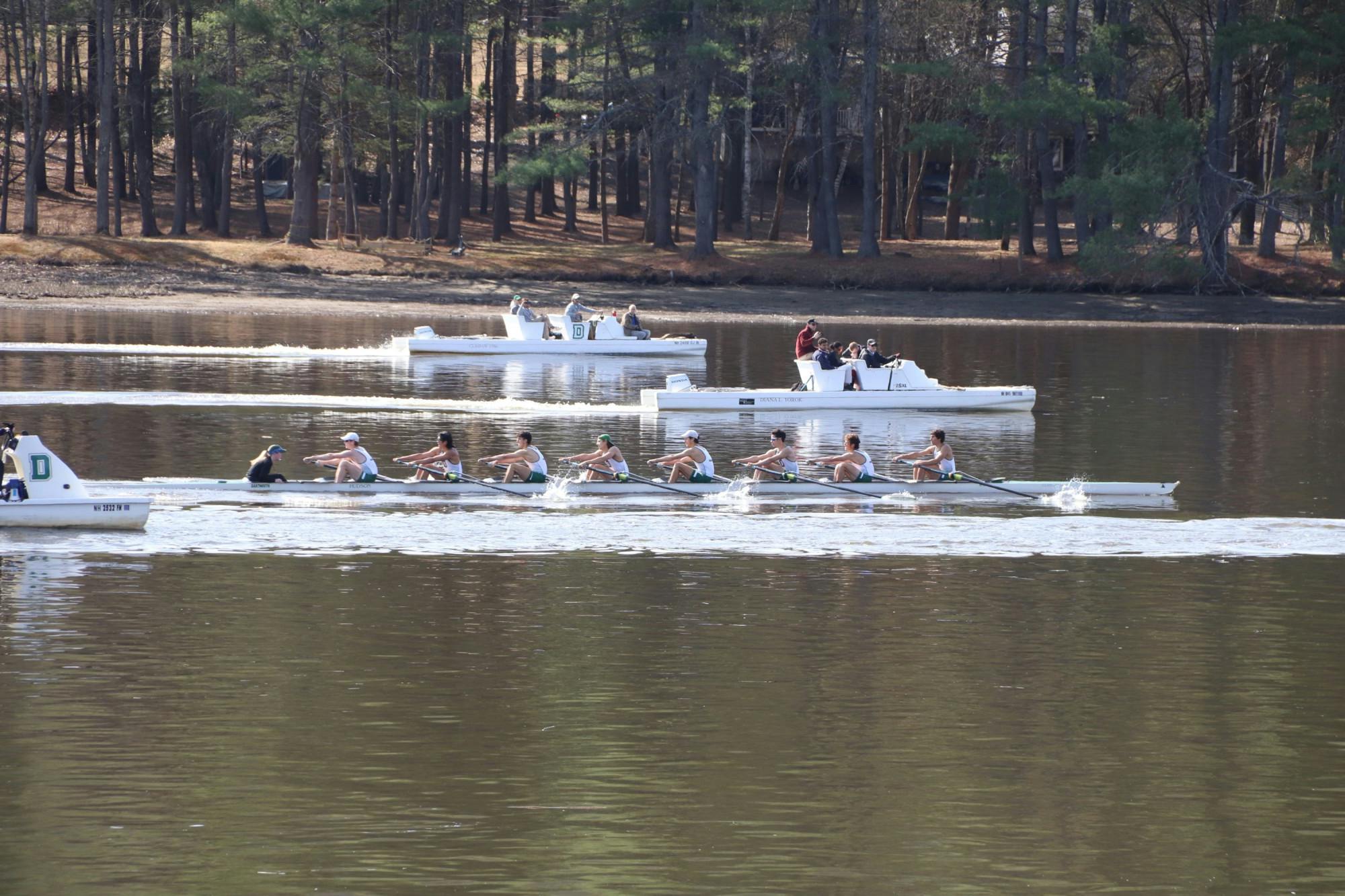This article is featured in the 2023 Freshman special issue.
Hanover had its fair share of weather-related issues throughout the summer, from poor air quality due to wildfires in Canada to heavy rainfall throughout the Northeast, which caused severe flooding in nearby towns. These weather conditions negatively impacted many student athletes as they trained over the summer.
DJ Matusz ’25, a member of the men’s cross country and track and field teams, was on campus during the interim period between spring and summer terms, when the air quality was at its worst, according to Matusz.
“Going into the summer interim, there were some crazy wildfires that had smoke blowing down from Canada into Hanover,” Matusz said. “It made it really difficult for a lot of our teammates to run.”
Cross country and track and field runner Payton Weiner ’25 went home to New Jersey during the interim before summer, but her training was still negatively affected by the poor air quality, noting she felt some side effects.
“During my two weeks off between spring and summer, I had poor air quality at home,” Weiner said. “So I was kind of used to it [once back on campus]. I don’t know if it necessarily made running much harder in the moment, but I experienced some side effects like headaches and a little bit more difficulty breathing, so I did [some] runs on the treadmill to avoid training in dangerous air quality.”
Samantha Paisley ’25, a member of the women’s rowing team, said she was also impacted by the poor air quality. Unlike Matusz and Weiner, she was “hesitant” to continue training amidst the wildfire smoke, as she had previously experienced the side effects of poor air conditions.
“I grew up in a very air quality-conscious environment in Utah. So, when the air quality got bad, I decided I would not train because I didn’t want to hurt my lungs,” Paisley said. “All of my friends, varsity athletes or non-varsity, who recreate outside, were not phased by the warnings, but I was definitely concerned.”
In the middle of July, as the air quality seemed to be improving, the College experienced severe rainfall. This led to the flooding of nearby towns and even a campus-wide email from director of Dartmouth Safety and Security Keiselim Montás, alerting students about the flooding and encouraging them to stay away from the river.
As a result of the floods, all three rowing teams were unable to row “for a couple of weeks”, according to women’s rower Arianna Stamatoyannopoulos ’25. The United States U23 Team practiced in Hanover for one week before departing for the 2023 World Rowing Under 23 Championships. However, due to the inclement weather and dangerous river conditions, the team left Hanover one day early to train in Boston before they set off to Bulgaria, according to Paisley.
Paisley explained that the fact that the teams had to stop rowing demonstrated the “severity” of the storm.
“Regardless of the weather, we row as long as the lightning is not too close,” Paisley said. “So when it was raining initially, it didn’t stop practice. As it kept raining, there was too much water for the river to hold, so they released the dam. With the combination of the sheer amount of rain, pushing debris into the water, and then also releasing the dam, the water moves much faster and the debris causes the water to be impossible to row.”
The intense rain also affected other sports teams. According to Matusz, these “intense rainstorms” have made running outside a “challenge.”
“When it’s really coming down, we’ve had to make some alterations, like going on the treadmill or just doing our drills in [Leverone Field House],” Matusz said.
Given these conditions, some coaches gave advice to their teams. However, due to NCAA rules, some sports teams cannot formally train — meaning they cannot have “scheduled practices” — during the summer, so their coaches can only send advisory messages, according to Paisley.
Matusz said his coach issued warnings on air quality before the summer as well.
“Our coach is adamant about making sure we train in air that is safe,” Matusz said. “In the winter, he’s worried about exposure to our lungs from the cold air, so we run inside if it’s under 10 degrees Fahrenheit. Thus, when it got really bad during the summer interim, he basically said we shouldn’t run, so we resorted to lifting auxiliaries and running inside.”
Weiner explained that the women’s running coach had the same mentality.
“My coach would send out a message to runners on campus that said, ‘If you’re running today or training, I’d recommend doing it inside on the treadmill,’ or, ‘Get your run in earlier today because the air quality is going to get worse later today,’” Weiner said. “She sent some warnings to us, but technically speaking we’re not doing formal training right now, so all workouts are optional, and she was giving advice.”
Paisley also voiced how “unexpected” the summer weather was this year.
“I wasn’t expecting anything as dramatic as this,” Paisley said. “There were days where I think it didn’t stop raining for 24 hours. I’m from Utah and it’s just a desert, and I had never seen anything like this before.”
Despite the poor conditions, the athletes conveyed no loss of spirit. Although indoor workouts to avoid poor air quality or rain fostered more individualistic training due to running on individual treadmills rather than outside together, Weiner said the runners fight through the weather as a team.
“Our team is very good at having good morale in bad conditions or situations,” Weiner said. “My teammate and I did a workout in the pouring rain, and the training itself was pretty miserable, but afterwards it turned out to be our favorite workout of the summer. I think it’s discouraging at first in bad weather conditions, but we usually end up having a good time.”
Paisley is a member of The Dartmouth’s design team.




